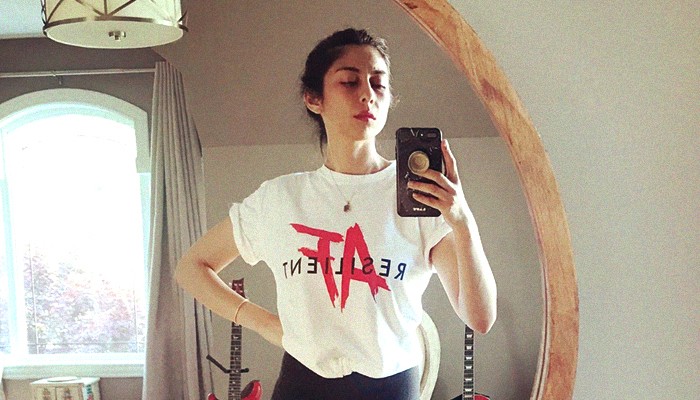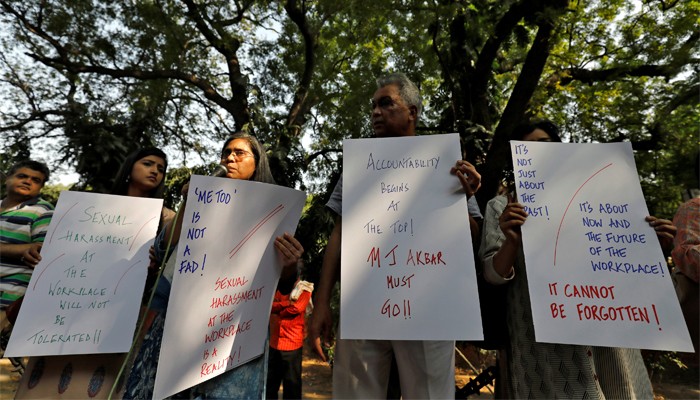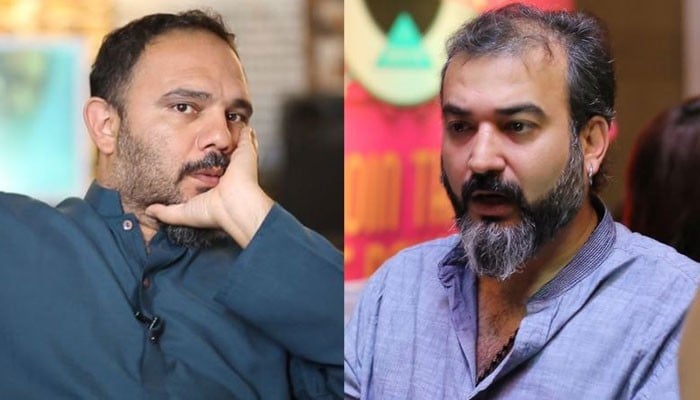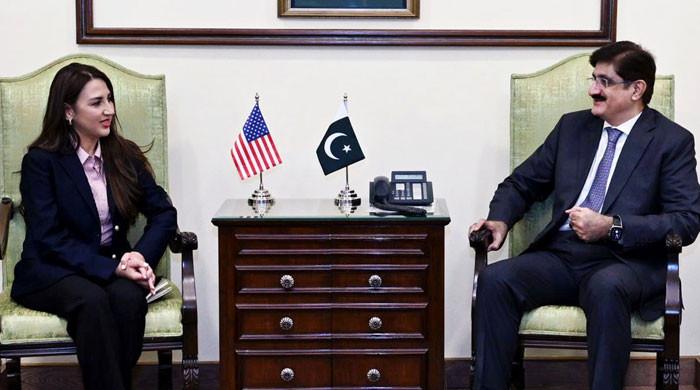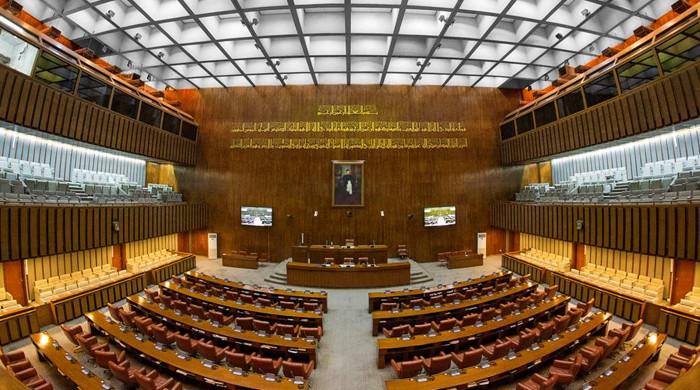Women's Action Forum calls for decriminalising defamation, says law used as 'silencing tool'
Women's Action Forum statement detailed environment of fear surrounding survivors and allies who speak about sexual violence
August 26, 2019
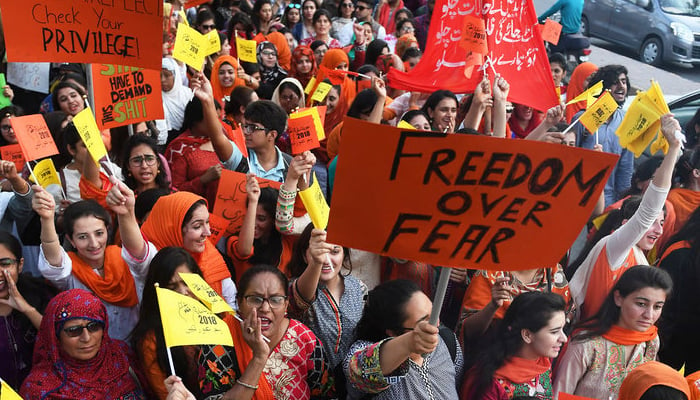
KARACHI: The Women's Action Forum (WAF) has called for the decriminalising of defamation, saying the law is used "as a silencing tool", it said in a statement issued Monday.
Titled "Stop Using Criminal Defamation as a Silencing Tool," the statement detailed the current environment around the cases of sexual violence, including assault and harassment, and how an air of fear has spread for survivors who already have to muster courage to speak up about the abuse they faced.
The statement, a copy of which is available with Geo.tv, said the WAF's Karachi chapter has witnessed "an alarming rise in the registration of criminal defamation cases against individuals speaking or reporting on specific incidents of harassment, assault and rape".
According to the Women's Action Forum, the defamation laws are creating panic and making women and allies speaking about sexual violence uneasy over the possibility of being slapped with defamation cases.
"This is resulting in a chilling effect and is adversely silencing victims/survivors, and all those engaging in public discourse on the issue of sexual harassment and violence," the statement added.
The WAF noted that those who were facing legal repercussions through defamation cases — and their own cases being postponed or not given the required attention — included "those speaking about their experiences, anyone expressing support, commenting on a public issue and reporting on this in a professional capacity".
Speaking of the Protection against Harassment of Women at Workplace Act, 2010, the women's group underscored that it was introduced also to also "enable women to step forward and break the culture of silence and stigma attached to this issue".
However, using defamation cases to silence or attempt to censor those who speak or debate publicly and share their views on cases filed under the aforementioned act "prevents aggrieved parties from considering even legal recourse available to them".
The WAF further called out how the Federal Investigation Agency (FIA) and the courts take "instant action" on defamation cases filed by alleged sexual harassers and sexual abusers, which was "in stark contrast to the apathetic response to complaints made by women facing harassment".
In fact, it added, "in some cases, bailable arrest warrants have been issued by sessions courts and in others, summons upon summons by the FIA, launching investigations into these complaints of alleged defamation" whereas actual harassment and abuse cases — that need urgent attention remain "pending before courts and the FIA" and "not given the same priority".
'Weaponised'
The statement noted: "Several complaints are pending against the FIA and its officers before the National Commission Human Rights, under Section 22-A of the CrPC and Article 199 for non-registration of complaints or negligence in cases where the complainant is a woman.
"Yet strangely enough, in recent complaints of defamation, the FIA has been quick to act," the WAF highlighted, adding that some complaints were getting precedence and victims and survivors were forced to face red-tapeism.
The group also spoke of how it was extremely unjust to see that criminal defamation was "weaponised and used as a silencing tool", which, it said, was counter-productive.
"WAF also observes the unfairness of how one party is gagged by the courts while the other is free to propagate their side of the story whether in the media or on social media," the statement noted.
The WAF divided into two broad categories its remedies to make the environment safer and securer for the victims and survivors to speak up about sexual violence and not have to worry about legal repercussions.
'Restrain FIA from acting unlawfully'
First off, it demanded that the defamation be decriminalised. It asked that Section 20 of PECA and Section 499 and 500 of the PPC be repealed and the Defamation Ordinance 2000 be amended to make sure it was not used to threaten individuals exposing cases of harassment or sexual violence.
The second demand the WAF made was to compel the FIA to handle complaints fairly and "individuals exposing cases of harassment or sexual violence". It also called for public accountability and transparency around processing of complaints and progress of cases, as well as to "restrain FIA from acting unlawfully".
It is pertinent to note here that singer Meesha Shafi, who accused fellow singer Ali Zafar of sexual harassment, was barred from speaking about her case or the proceedings when a court put a gag order on her. Zafar, on the other hand, has no such limitations.
Back in April, Meesha's legal team had to challenge a decision by the Lahore High Court (LHC) in the Supreme Court when a district judge had ordered that Ali Zafar’s defamation case against her be concluded by April 15.
Her lawyer had said the trial court did not permit to delay cross-examination of witnesses and argued that cross-examining the witnesses was a right of the other party.
'Stop intimidating people with shallow threats'
In fact, one of Meesha's lawyers, Nighat Dad, earlier pointed out the hypocrisy and expressly mentioned why the singer was not appearing in the court.
"While Meesha has a gag order against her under defamation suit, she can’t talk on mainstream media & social media about the case While other party to the case uses mainstream media and online spaces to spread misleading narrative around the case and viciously calls her liar," Dad wrote.
"Stop intimidating people with shallow threats of filing cases against them. … Meesha has not been called by the court as of yet, she will go once court will direct her to," she had added.
On the other hand, Ali Zafar has often spoken publicly in the past — especially after court hearings — to claim that he was "targeted for personal gains", that the sexual harassment allegations had caused him mental anguish and financial damage, and that the #MeToo movement was misused against him.
'Consent and accountability'
In this regard, Meesha had tweeted earlier, terming Zafar's attempts to discredit survivors of sexual trauma as "nothing new" and that "these attacks and conspiracy theories, albeit very creative, are baseless".
She had added that "going after all the women standing up for women is an entirely predictable age old silencing tactic" and that it was "extremely underhanded and desperate" to try and malign her lawyers.
The "Leela" singer had further bashed misogynists who cry "foreign funding, foreign agenda" whenever brave women decide to speak up about being harassed, violated, humiliated or feeling unsafe.
"Learn about consent and accountability. Safe spaces. Freedom of speech. Gender equality and respect!"


